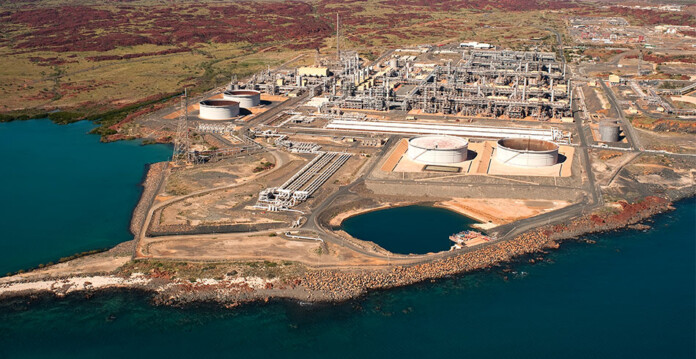Australian Environment Minister Murray Watt has conditionally approved extending Woodside Energy’s North West Shelf gas plant until 2070, following a six-year review impacted by appeals by environmental groups and Traditional Custodians.
Located on the Burrup peninsula in Western Australia, the North West Shelf gas plant is the country’s oldest and largest LNG plant and key exporter of gas overseas. Its existing approval is set to expire in 2030.
Minister Watt said the approval of project extension was subject to strict conditions relating to the impact of air emissions levels and considered the impact of emissions on the Murujuga rock art.
Related article: Traditional custodian takes legal action against Environment Minister ahead of Woodside decision
Estimated to be up to 50,000 years old, the rock art is of cultural and spiritual significance to Australia’s First Nations people.
“I have ensured that adequate protection for the rock art is central to my proposed decision,” Watt said.
Woodside has 10 days to respond to the conditions on air quality and cultural heritage management before Watt makes the final decision.
News of the project’s extension has been condemned by environmental and conservation groups.
Australian Conservation Foundation CEO Kelly O’Shanassy said, “This is a bitterly disappointing decision that locks in decades more climate pollution and will drive demand to open new gas fields.
“Approving the expansion of fossil fuel projects is the opposite of climate action.
“The ancient World Heritage-nominated petroglyphs at Murujuga may not be visible in 2070 if acid emissions from Woodside’s Burrup gas hub keep deteriorating the rocks’ surface.”
Woodside welcomed the government’s decision.
“(We) are reviewing the proposed conditions to understand their application,” the oil and gas giant said in a statement.
“We remain committed to protecting the Murujuga cultural landscape and support its World Heritage nomination.”
Meanwhile, Woodside CEO Meg O’Neill drew ire with her response to a panel question at an energy producers conference, implying young people who took an ideological stand against fossil fuels were hypocrites.
O’Neill was asked by moderator Chris Uhlmann if she thought people were aware of where their electricity came from.
Related article: Climate change activists protest at Woodside AGM
“Most people hit a switch and expect the lights to come on,” she replied.
“It’s been a fascinating journey to watch the discussion, particularly amongst young people who have this very ideological, almost zealous view of, you know, fossil fuels bad, renewables good, that are happily plugging in their devices, ordering things from Shein and Temu—having, you know, one little thing shipped to their house without any sort of recognition of the energy and carbon impact of their actions.
“So, that human impact and the consumer’s role in driving energy demand and emissions absolutely is a missing space in the conversation.”







